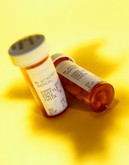Pharma News
GSK acquires Argentine generics’ maker Laboratorios Phoenix
On 10 June 2010 GlaxoSmithKline (GSK) acquired Laboratorios Phoenix, a leading Argentine pharmaceutical business, for approximately US$253 million. GSK will gain full ownership of Phoenix in a move to accelerate sales growth and further extend its pharmaceutical portfolio in Argentina and the Latin America region.
Abbott acquires Indian generics’ maker Piramal Healthcare
The US-based company, Abbott, agreed to buy the domestic unit of Piramal Healthcare, one of India’s biggest generics makers, for US$3.7 billion.
EGA welcomes MEPs decisions on falsified medicines and pharmacovigilance reports
On 27 April 2010, ENVI (The Committee on the Environment, Public Health and Food Safety) of the European Parliament voted to adopt reports on both falsified medicines and pharmacovigilance. The measures included in these reports are intended to increase patients’ safety. This can only be good news for the generics sector, as this should result in increased consumer confidence and as a result encourage acceptance and increase sales of generics.
IMS Health Top 20 pharmaceutical companies 2009
The 2009 list of the top 20 pharmaceutical companies, ranked by IMS Health according to global prescription drug sales for the 12 months up to September 2009, shows that Teva, Novo Nordisk and Boehringer Ingelheim scored better in percent change than Big Pharma in those months.
IMS Health, BCC: Generics sales continue to climb
Over the 12 months that ended September 2009, global sales of generics grew by 7.7%, up from 3.6 % the year before, IMS Health reported. This compares with the 5.7% growth seen within the overall global pharmaceutical universe in 2009.
Global generics: time for consolidation and expansion
The global generic drug industry has witnessed an almost decade-long sales euphoria. Volumes and sales growth of prescription generic drugs continued to increase in 2009. At the same time, large companies are consolidating their operations in established markets and/or expanding into emerging ones through local acquisitions or partnerships.
After generics slow down in 2013: into biosimilars
Large pharmaceutical companies are consolidating their generics operations in established markets and/or expanding into emerging ones through local acquisitions or partnerships, writes Ms Doris de Guzman on ICIS website of 10 February 2010.
Originator/generic competition: who's the 'bad guy'?
As reported in Scrip News on 28 January 2010 by Xavier Buffet Delmas and Laura Morelli of Hogan & Hartson MNP, Paris, intellectual property rights are key elements of the fierce competition between originator and generics companies. Patents are central because it is only when patents elapse that generic products can enter the market. This is when competition in the market begins. Trademarks, trade dress and other marketing tools then come into play. The authors explain some interesting recent legal developments linked to this battle.
Indian Ranbaxy buys Biovel to strengthen in vaccines and follow-on biologics
Ranbaxy Laboratories in India (now part of Daiichi Sankyo) has strengthened its vaccine and biologicals manufacturing capabilities by acquiring India-based Biovel Lifesciences.
Pharmalot: Are pay-for-delay deals good or bad?
On 13 January 2010, the Federal Trade Commissioner (FTC) Jon Leibowitz held a press conference to deride the ongoing practice in which brand-name drugmakers offer cash or some other inducement to their generic rivals, which, in turn, agree to delay the marketing of lower-cost copycat medicines.











